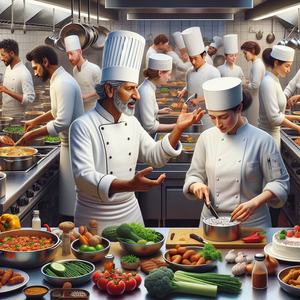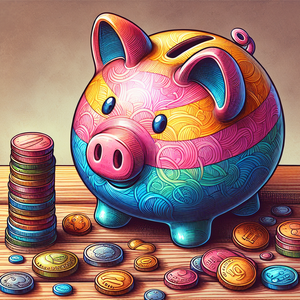
Decoding the Culinary Hierarchy: A Deep Dive into Various Chef Roles and Their Impact
The culinary realm is a vibrant mosaic of career paths, each bringing its own set of challenges and rewards. For anyone eyeing a career in this field or simply wanting to understand the functioning of professional kitchens, it’s crucial to grasp the hierarchy of chef roles. From the dynamic Executive Chef to the creative Vegan Chef, this exploration delves into the diverse positions within the culinary landscape, shedding light on their responsibilities and the skills necessary for success.
Job Summaries:
Executive Chef (Chef de Cuisine):
- The Executive Chef stands at the helm of the kitchen, orchestrating all culinary activities, from menu design to staff oversight.
- This pivotal role requires extensive culinary expertise, strong leadership, and business savvy.
- Often necessitating a degree from a culinary institution coupled with years of hands-on experience.
Sous Chef:
- Serving as the right-hand person to the Executive Chef
- The Sous Chef must blend culinary skills with management capabilities
- This role involves supervising kitchen staff
- Aiding in menu planning
- Overseeing food preparation
Pastry Chef (Patissier):
- Focusing on the art of desserts and baked goods
- The Pastry Chef blends creativity with technical prowess
- This role requires crafting and presenting sweet dishes
- Elevates the dining experience
Chef de Partie (Station Chef):
- The Chef de Partie manages a specific kitchen section, such as the grill or pantry.
- Necessitating specialized knowledge of that area.
- Effective team management skills.
Saucier (Sauce Chef):
- Responsible for crafting sauces, stocks, and soups
- Holds one of the most esteemed positions in the kitchen
- Demands a profound understanding of flavor profiles and cooking techniques
Fish Chef (Poissonier):
- As a specialist in seafood, the Fish Chef must possess knowledge of various cooking techniques and fish handling.
- Typically requiring a culinary degree and experience in seafood preparation.
Vegetable Chef (Entremetier):
- The Vegetable Chef is responsible for preparing vegetables.
- The Vegetable Chef is responsible for preparing soups.
- The Vegetable Chef is responsible for preparing egg dishes.
- The role necessitates strong knife skills.
- The role necessitates a deep understanding of cooking methods.
Grill Chef (Grillardin):
- Focusing on the art of grilling meats and vegetables
- The Grill Chef must master grilling techniques and flavoring methods
- Often requiring culinary training and experience in fast-paced kitchens
Fry Chef (Friturier):
- The Fry Chef specializes in preparing fried foods
- From appetizers to main courses
- Requires knowledge of frying techniques
- Requires knowledge of food safety regulations
Butcher Chef (Boucher):
- The Butcher Chef focuses on meat preparation
- From butchering to cooking
- Requires extensive knowledge of meat cuts
- Requires knowledge of food safety
- Requires knowledge of cooking techniques
Personal Chef:
- Catering to clients in their homes
- Personal Chefs prepare meals tailored to specific dietary preferences
- Demanding strong culinary skills
- Creativity
- Efficient time management
Caterer Chef:
- Caterer Chefs design and prepare meals for events like weddings and corporate functions.
- Caterer Chefs require excellent culinary skills.
- Caterer Chefs require excellent organizational skills.
Research Chef:
- Research Chefs focus on developing new recipes and food products
- They necessitate culinary expertise
- They require a solid understanding of food science
Vegan Chef:
- Specializing in plant-based cuisine
- Creates dishes that emphasize health and sustainability
- Requires creativity and culinary skills
Garde Manger:
- The Garde Manger is responsible for preparing cold dishes.
- Includes salads and appetizers.
- Requires strong presentation skills.
- Requires food safety knowledge.
Kitchen Porter:
- Supporting kitchen operations
- Performs basic food preparation
- Maintains cleanliness
- Ideal starting point for newcomers in the field
Commis Chef:
- An entry-level role
- The Commis Chef assists in food preparation and cooking
- Requires a basic understanding of cooking techniques
- A willingness to learn
Culinary Instructor:
- Culinary Instructors impart essential skills to aspiring chefs
- Culinary Instructors require extensive culinary knowledge
- Culinary Instructors require teaching experience
Food Stylist:
- Focusing on the aesthetic presentation of food for photography and video.
- A Food Stylist must possess a sharp eye for design and culinary skills.
Food Truck Chef:
- Operating mobile kitchens
- Food Truck Chefs prepare and serve food in various locations
- Requiring culinary skills
- Creativity
- Ability to manage a small team
By exploring these diverse culinary roles, aspiring chefs can pinpoint their niche within the vibrant gastronomic world. Each position presents unique challenges and rewards, making a career in culinary arts both stimulating and fulfilling.
Explore More Jobs

